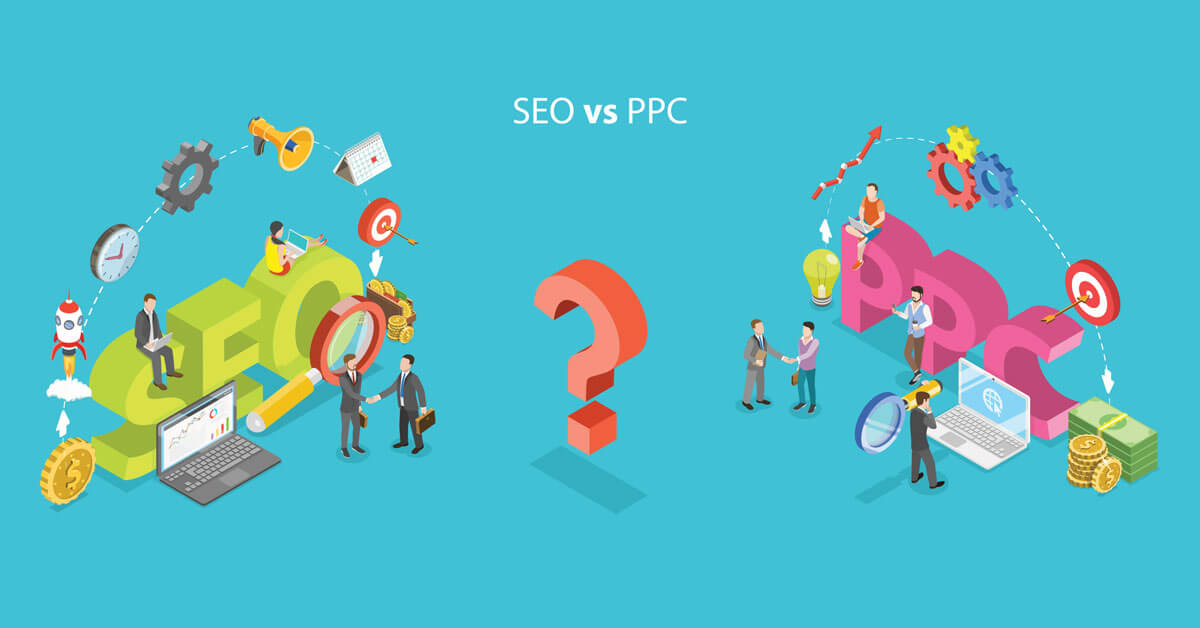Two heavyweights often slug it out in digital marketing for supremacy: Pay-Per-Click (PPC) advertising and Search Engine Optimization (SEO). Each has its merits and unique approaches to boosting online visibility and driving website traffic. In this blog, we’ll delve into the intricate battle between PPC and SEO, exploring their strengths and weaknesses and when to deploy each strategy.
The Basics: What Are PPC and SEO?
- PPC (Pay-Per-Click): PPC, short for Pay-Per-Click, is an advertising strategy in which advertisers are charged a fee for every click their ad receives. These advertisements commonly appear at the upper or lower sections of search engine results pages (SERPs) and on a variety of websites throughout the internet. Among the leading platforms for PPC advertising is Google Ads.
- SEO (Search Engine Optimization): SEO, which stands for Search Engine Optimization, is a natural and unpaid approach designed to enhance a website’s position in search engine results. This process entails refining different aspects of a website, such as its content, meta tags, and backlinks, with the goal of elevating its visibility and authority in the estimation of search engines like Google, Bing, and Yahoo.
Round 1: Speed and Immediate Results
PPC: When it comes to speed and immediate results, PPC has the upper hand. Advertisers can set up PPC campaigns quickly and drive targeted website traffic within hours. This is ideal for businesses looking to generate fast results, such as launching a new product or promoting a time-sensitive offer.
SEO: On the other hand, SEO is a strategy with a long-term focus that demands patience. The process involves search engines crawling and indexing web pages, and noticeable enhancements in organic rankings might not become apparent until several weeks or even months have passed. SEO can be likened to a marathon rather than a sprint.
Round 2: Cost
PPC: While PPC offers immediate results, it comes at a cost. Advertisers pay for each click, and the competition for popular keywords can drive up the cost-per-click (CPC). Budgets can quickly escalate, making PPC expensive for some businesses, especially small ones.
SEO: In the long term, SEO proves to be a budget-friendly strategy. After optimizing your website and achieving favorable organic rankings, you can benefit from a consistent flow of traffic without the ongoing costs linked to PPC. Nevertheless, it’s crucial to recognize that SEO does necessitate an investment of time and resources.
Round 3: Sustainability
PPC: The moment you stop paying for PPC ads, your visibility in search results disappears. It’s a short-term solution that offers immediate gratification but lacks long-term sustainability.
SEO: SEO is all about sustainability. While it takes time to build momentum, the results can last a significant period of time, even if you reduce your SEO efforts. Once you’ve earned top rankings for relevant keywords, you can enjoy organic traffic for an extended period.
Round 4: Credibility and Trust
PPC: Some users tend to skip over PPC ads, perceiving them as paid promotions. However, PPC ads can still provide value when relevant and align with the user’s search intent.
SEO: Websites that appear in organic search results often enjoy higher credibility and trust among users. Many people trust Google’s algorithm to deliver the most relevant and authoritative results, often leading to higher click-through rates for organic listings.
Round 5: Targeting
PPC: PPC offers precise targeting options, allowing advertisers to reach specific demographics, locations, and device types. This level of control can be particularly useful for businesses with well-defined customer segments.
SEO: While SEO can target specific keywords and demographics to some extent, it doesn’t offer the same level of granularity as PPC. SEO is more about optimizing your website for relevant searches and letting search engines determine who sees your content.
The Knockout Punch: When to Use Each Strategy
So, which is better: PPC or SEO? The answer depends on your distinct goals and objectives.
- Use PPC when you need immediate results, have a specific budget for advertising, want to test different keywords and ad copy, or want to complement your SEO efforts.
- Use SEO when you’re looking for long-term, sustainable growth, have the patience to wait for results, aim to build credibility and trust with your audience, and are prepared to invest in content creation and optimization.
Ultimately, the battle between PPC and SEO is not about one being superior to the other; it’s about choosing the right strategy based on your business objectives and resources. Many successful digital marketing campaigns combine both approaches to maximize online visibility and drive quality traffic to their websites. Remember, the key to winning this battle is understanding when and how to leverage each strategy effectively.
About Maxeemize
Maxeemize provides Digital Marketing services to small and medium-sized businesses in Orange County and across the United States. Our services include Responsive Website Design, SEO & SEO Audit, Social Media Marketing, Content Marketing, Pay Per Click Advertisement, Online Reviews Management, Photography, Video Marketing, Inbound Email Marketing and more. Contact Us at (949) 431-0431 for a complimentary consultation.


